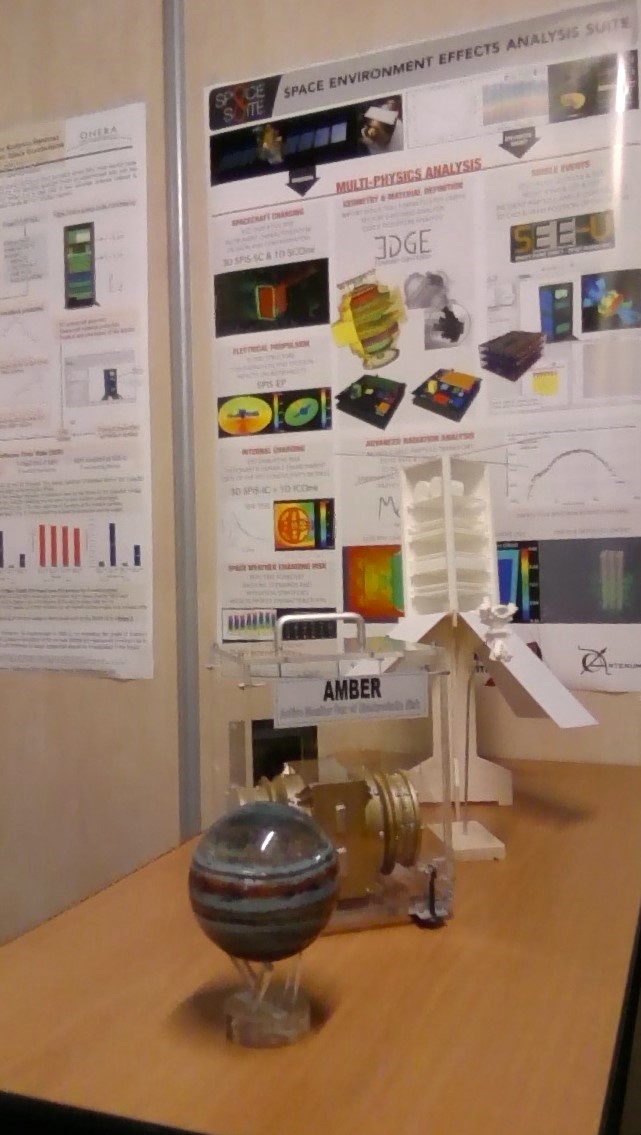In June 2024, the Artenum team presented two significant papers at the Spacecraft Charging and Technology Conference (SCTC) in Avignon, France. This international forum is dedicated to the science and technology of spacecraft electrical charging by the space environment, covering a broad spectrum of topics on spacecraft interactions with charged particles and their environmental impacts.
Validation of Internal Charging Risk Analysis within the PAGER Framework
The PAGER project, funded by EU Horizon 2020, focuses on simulating and forecasting space weather to predict geomagnetic storms and radiation effects, providing risk evaluations for spacecraft operators. Utilizing advanced tools like SpaceSuite, EDGE, SPIS-SC, SPIS-IC, MoORa, ICOne, and SCOne, the project models the risk of charging depending on the results of the space weather forecast..
The talk focused on the use of these tools to identify the risks of IESD (Internal Electro Static Discharge) between August and December 2015. Four of the six identified risks are observed in-flight IESD anomalies.
The PAGER website and the SpaceSuite Charging Forecast website are today the reference services for space-weather charging risk prediction service in Europe.
Exploring Charging Mechanisms in Polar Earth Orbits (PEO) Using SPIS
This study investigates the complex charging mechanisms experienced by satellites in Polar Earth Orbits (PEO) using the SPIS simulation tool. It examines deep negative charging events observed in missions like the Swedish/German FREJA, US/DMSP, and CNES/JASON-3, particularly during auroral activities and high-energy electron precipitations.
The Swedish Freja mission provided valuable insights into plasma environments in polar regions, highlighting significant charging events and their implications. The study analyzed various spacecraft configurations, revealing the crucial impact of hot electron populations on charging behaviors. It also explored the role of materials, such as Indium Tin Oxide (ITO), on spacecraft potential, emphasizing the importance of accurately characterizing Secondary Emission Yield (SEY) properties to mitigate charging risks.
This research enhances our understanding of spacecraft charging dynamics in PEO, contributing to safer and more reliable space missions and especially for communication constellations.in PEO/LEO.


